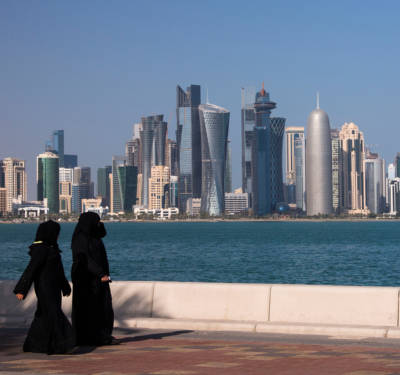Non-medical cancer support for Qatari women
The vast majority of female cancer patients in Qatar find psychosocial support an important part of the healthcare they receive.
Published online 30 July 2015

The lack of a cancer registry in Qatar makes research that provide demographic information particularly useful.
© Prisma Bildagentur AG / Alamy
Patients' perceptions of the importance of psychosocial support is becoming increasingly important for improving the quality of patient-centred care, but information about the attitudes of female cancer patients in Arab and Muslim populations is scarce.
So Razzan Alagraa of Sheffield University and her colleagues investigated the extent to which female cancer patients in Qatar view psychosocial care as important, publishing their findings in the Qatar Medical Journal1.
They administered Arabic and English-language questionnaires to a total 133 women, all of whom had been diagnosed with cancer at the National Center for Cancer Care and Research in Qatar.
The questionnaire was designed to obtain socioeconomic information such as age, nationality, religion, level of education, and marital status. It also included questions that surveyed the patients' views about four types of psychosocial support: physician-referred support, family support, support groups, and religious or spiritual support, and required them to rate the importance of each.
Of the 133 women surveyed, only four declined to take part. Roughly half of the respondents spoke Arabic, and the other half spoke English. The majority of them (~60%) self-identified as Muslim, with the most common diagnosis being breast cancer.
Approximately two thirds of the respondents indicated that they would like to have some of the support services mentioned, compared to one third who answered 'no'. One fifth stated that they would like physician-referred support, and another fifth said they would like religious support. Only 13% indicated that they would like to receive all four types of support, while just over one quarter did not indicate a preference.
Qatar does not have a cancer registry, so the study provides valuable demographic information that could be useful for future studies of cancer in Qatar and the wider Middle East region.
“The most important question is how to translate our findings into services that will actually be used by the patient population,” says Alagraa. “Certain areas of support may be rated high in terms of importance, but the services may not be used by patients for various reasons, [such as] poor design and implementation of programmes or lack of patient input, so we would like to conduct one-on-one interviews with patients to get a sense of what specific aspects patients would like see in a support service.”
Reference
Alagraa, R., Abujaber, A., Chandra, P. & Doughty, J. Evaluating psychosocial support needs of female cancer patients in the State of Qatar. Qatar Med. J. 2015, 4 (2015). | article
DOI: 10.1038/qsh.2015.72

